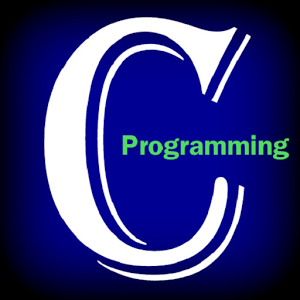We have started series of C programming Q&A for job interview candidates.Engineering Professionals and students alike will be benefited.We recommend our user to go through previous post to enhance their knowledge and increase their work productivity and skill ratings at their Job.
We encourage our readers to provide feedback and ask question if required. We have tried our best to avoid any errors/ misprints,but if found by our readers please let us know.You can reach us at�info@ingenuitydias.com
C Question Bank
Differences between Mutex And Semaphore
Difference Between Process and Thread
Storage Classes Interview Q&A
1.We can insert pre written code in a C program by using
2. The first expression in a for loop is
3. Break statement is used for
4. Continue statement used for
5. What will be output of
#include
void main()
{
char test =`S`;
printf("\n%c",test);
}
6. Due to variables scope in c
7. What will be the output of following program
#include
main()
{
int x,y = 10;
x = y * NULL;
printf(\"%d\",x);
}
8. Difference between calloc() and malloc()
9. Exit() is same as return
CONTINUE READING �
We encourage our readers to provide feedback and ask question if required. We have tried our best to avoid any errors/ misprints,but if found by our readers please let us know.You can reach us at�info@ingenuitydias.com
C Question Bank
Differences between Mutex And Semaphore
Difference Between Process and Thread
Storage Classes Interview Q&A
1.We can insert pre written code in a C program by using
- #read
- #get
- #include
- #put
2. The first expression in a for loop is
- Step value of loop
- Value of the counter variable
- Any of above
- None of above
3. Break statement is used for
- Quit a program
- Quit the current iteration
- Both of above
- None of above
4. Continue statement used for
- To continue to the next line of code
- To stop the current iteration and begin the next iteration from the beginning
- To handle run time error
- None of above
5. What will be output of
#include
void main()
{
char test =`S`;
printf("\n%c",test);
}
- S
- Error
- Garbage value
- None of above
6. Due to variables scope in c
- Variables created in a function cannot be used another function
- Variables created in a function can be used in another function
- Variables created in a function can only be used in the main function
- None of above
7. What will be the output of following program
#include
main()
{
int x,y = 10;
x = y * NULL;
printf(\"%d\",x);
}
- error
- 0
- 10
- Garbage value
8. Difference between calloc() and malloc()
- calloc() takes a single argument while malloc() needs two arguments
- malloc() takes a single argument while calloc() needs two arguments
- malloc() initializes the allocated memory to ZERO
- calloc() initializes the allocated memory to NULL
9. Exit() is same as return
- TRUE
- FALSE
10. calloc() belongs to which library
11. If include files can be nested
12. Which of the following below is/are valid C keywords
- stdlib.h
- malloc.h
- calloc.h
- None of above
11. If include files can be nested
- Yes
- No
12. Which of the following below is/are valid C keywords
- integer
- int
- null
- none of above
Update Contact :
No Wa/Telepon (puat) : 085267792168
No Wa/Telepon (fajar) : 085369237896
Email : Fajarudinsidik@gmail.com
No Wa/Telepon (puat) : 085267792168
No Wa/Telepon (fajar) : 085369237896
Email: Fajarudinsidik@gmail.com
atau Kirimkan Private messanger melalui email dengan klik tombol order dibawah ini :
